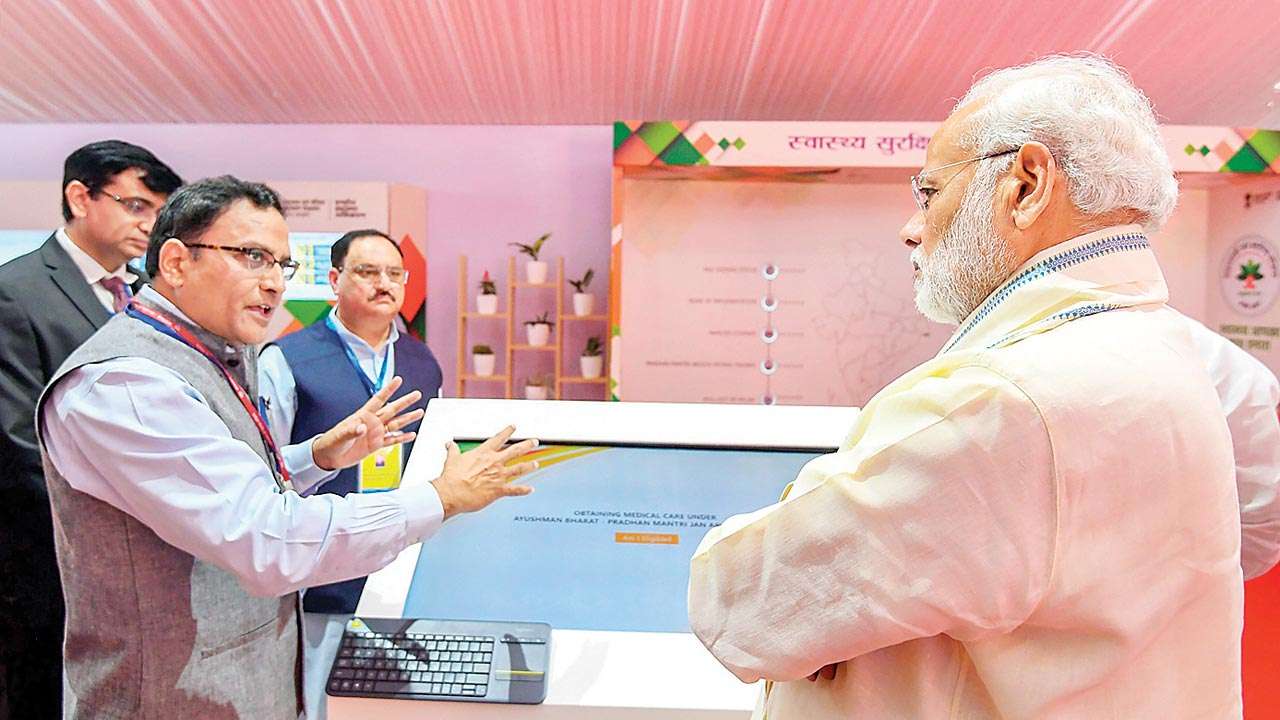
We were at a petrol pump the other day when I was returning from the airport, Chander, my cabbie, and I. Ahead of us was a large billboard about ‘Pradhanmantri Ayushman Bharat Yojana’, the government’s health insurance scheme for the poor.
“How does one get into this madamji?” Chander asked me, while the car was getting filled.
I have been thinking about how to get the people who work at our home into some sort of health insurance since they and their families seem to be having health issues or minor road accidents with alarming frequency. So I thought it is a good time to find out, and called the helpline number written on the billboard. I expected a long wait or no answer but to my surprise it was quickly answered by an agent despite it being 8 pm. I posed the question that Chander had asked me and enquired what one must do to avail of this scheme.
The agent spoke in Telugu accented Hindi (perhaps the call centre is in Hyderabad) but fairly clearly.
“No one can now get into it, Madam,” he said. “We have a database of 50 crore families made in 2011, selected because they were Below Poverty Line households. If your name is there, you will get the benefit. What is your name madam?”
I hesitated and said it was for someone else.
“Ok, do you have the ration card number?” the agent asked.
That was not immediately available, so we checked if Aadhaar card would do, but the agent refused, saying that would not help him trace the person, which I thought was odd, considering everything and anything is being linked to Aadhaar.
We tried with Chander’s name, state, district and village where he lives.
Within a minute, the young man answered “There is no such person in our database madam. Does he have a Below Poverty Line card?”
“Chander, are you Below the Poverty Line?” I asked, simultaneously thinking that he was unlikely to be and certainly did not seem like it.
“Haanji, haanji,” Chander grinned. Why was he so cheerful about being below the poverty line, I thought.
“Can you please tell me his father’s name?” the agent’s voice brought my attention back to the call.
I transmitted the questions and answers between the agent and Chander who was getting all excited that he was the focus of the conversation.
“Mother’s name?”
“Phoolwati”
Wife’s name?
“Omvati.”
“There is no such person, madam,” the agent said woefully after some searching.
Then he asked a crucial question. “He is below the poverty line, no, madam?”
This time Chander chuckled and said he had a garibi rekha ke neeche wala card.
In my urban naivete, prone to righteous indignation, I said to the agent, “What do you mean, you can’t add to the database? What if some names have been missed while forming the database?”
“Madam, you can visit the Ayush Mitra, a person in the government hospital and tell him your problem. But I am sure he will also not be able to help you,” the agent said confidently.
“Then why should I meet him?”
“Just like that. If you want to report your problem to someone. But we already have 50 crore families in our database. Whoever is there already, only they can get the benefit.”
I sighed, thanked him and hung up. And then I looked at Chander and asked him the question that had earlier troubled me. “Are you sure you are below poverty line? How can you be...”
“Haanji, I have a card and papers which say my household income is below Rs.49,000.”
“But that’s impossible, even if you just take a rough per day earnings….”
Chander was by now outright laughing as the penny dropped for me.
“You have a farzi card!” I said. “And you wasted my time for this! No wonder your name is not there!” I said, though there is no connection between the two but I wanted to get back at him for sending me on a random chase.
“But another guy in my village has built a bungalow and he has a proper job. He has made a farzi BPL card and is also eligible for Ayush Yojna! I thought if he can, why can’t I!” he said, laughing away.
The writer is the author of the book Urban Villager: Life in an Indian satellite town. Views expressed are personal.